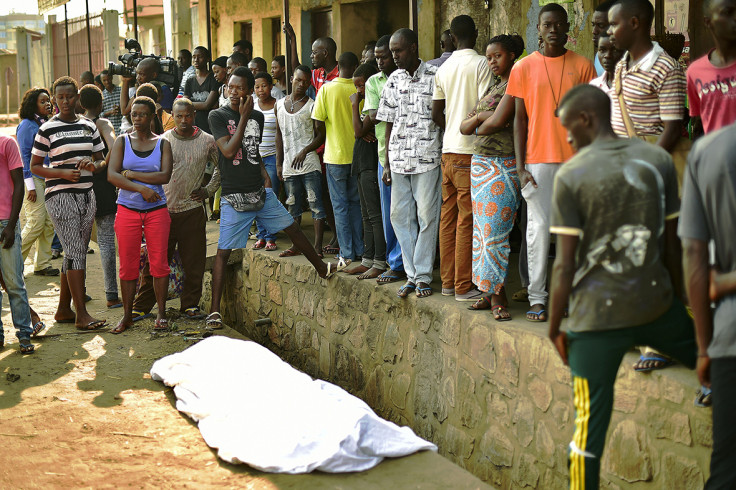Burundi unrest: Pattern of police brutality and impunity 'must end' warns Amnesty

Burundian authorities have used excessive lethal force during the repression of protests sparked after current President Pierre Nkurunziza announced he would run for a third term in April.
The unrest caused at least 100 deaths and prompted thousands to flee the country. The Burundian police as well as the Imbonerakure – the youth wing of Nkurunziza's party National Council for the Defense of Democracy – have been accused of committing abuses, such as killings and torture, against protesters.
According to a new report by Amnesty International, Burundian police adopted violence, also against women and children, in their fight to repress peaceful demonstrators and shot unarmed protesters running away from them.
"Despite dozens of protesters killed, and a myriad more injured by police, the Burundian authorities have failed to investigate," said Sarah Jackson, Amnesty's deputy regional director for East Africa, the Horn and the Great Lakes.
"The government must suspend suspects pending criminal investigations and prosecutions to end this pattern of police brutality and impunity."
The NGO also said that some policemen have been assassinated because they had different opinions regarding the conflict and Nkurunziza's third term bid. The claim was made by a police spokesman, who has now fled the country together with at least 144,000 people who fear a conflict might erupt.
"The Burundian authorities must urgently, thoroughly and transparently investigate the use of excessive lethal force against largely peaceful demonstrators and bring to justice anyone found to be responsible," the rights group said. "This is absolutely important to restore confidence in security services and reduce the risk of people finding more violent ways to express political grievances."
Following Nkurunziza's third term bid announcement, protesters accused the leader of violating the constitution and the Arusha Peace Agreement, which says the president can only stay in power for two terms.
Nkurunziza's supporters argued the president's first term should not be counted as he was chosen by the parliament and not by the people in an election as is specified in the agreement.
Amnesty added that Burundi is on the verge of a conflict. A fear also shared by Burundi's opposition leader Agathon Rwasa, who called for a unity government to avoid an armed conflict and called for new election in 2016.
Burundi held presidential election on 21 July after months of unrest. The country is still counting votes and results are expected by Friday (24 July).
More about Burundi
- In Focus: Burundi violence has 'worrying similarities to 1994 Rwanda genocide'
- Burundi coup: The country's long history of bloody overthrows
- Burundi coup: Who is 'charismatic' Major-General Godefroid Niyombare?
- Burundi coup: What do neighbouring countries think of Nkurunziza's third term bid?
- Burundi violence: From Belgian colonisation to ongoing fight for democracy
- Burundi elections: Timeline of political crisis that rocked the east Africa nation
© Copyright IBTimes 2025. All rights reserved.




















